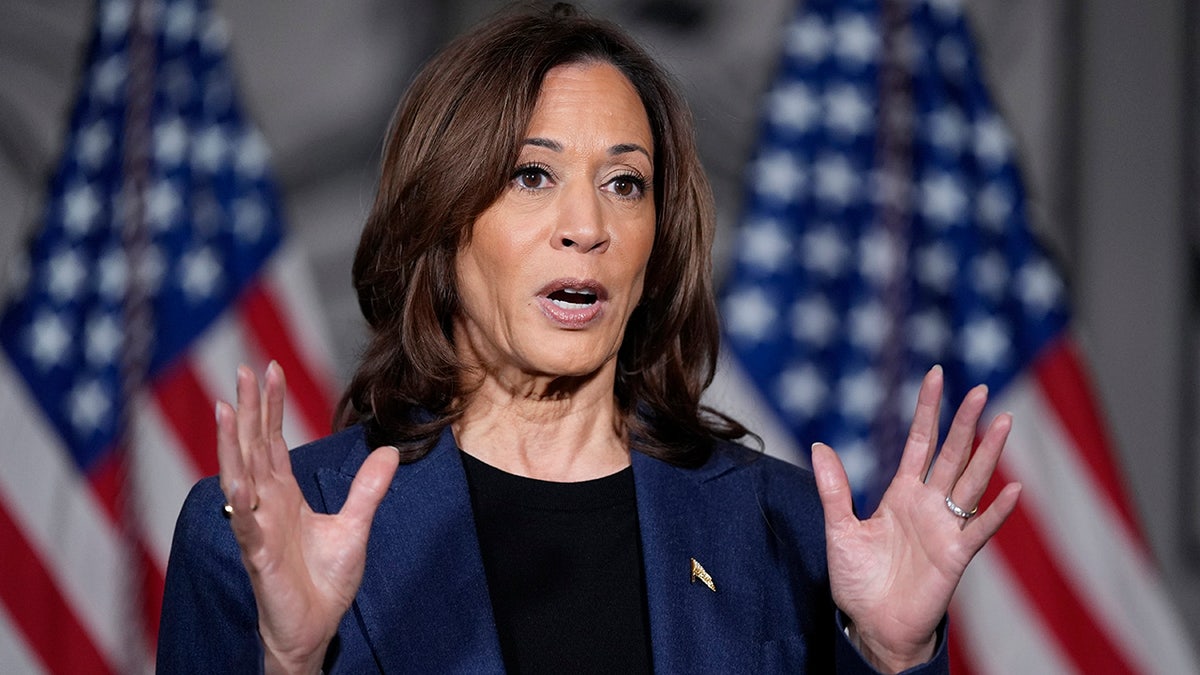
Minnesota girls' softball players react after judge throws out their lawsuit over dominant transgender pitcher
Entities mentioned:
- Minnesota girls' softball players: Competitive spirit, Justice, Self-respect
- Judge Eric Tostrud: Duty, Professional pride, Obligation
- Marissa Rothenberger: Competitive spirit, Ambition, Recognition
- Minnesota State High School League: Control, Determination, Loyalty
- Keith Ellison: Justice, Power, Determination
- Donald Trump: Righteousness, Control, Legacy
- U.S. Department of Education: Justice, Control, Duty
Article Assessment:
Credibility Score: 70/100
Bias Rating: 65/100 (Lean Right)
Sentiment Score: 30/100
Authoritarianism Risk: 40/100 (Generally Democratic)
Bias Analysis:
The article leans right, focusing more on the concerns of cisgender athletes and highlighting Trump administration actions. It gives less space to transgender perspectives or counterarguments.
Key metric: Gender Equality in Sports
Let me tell you something, folks - this is a CHAMPIONSHIP-LEVEL CONTROVERSY! We're seeing a real clash of titans here, with the Minnesota girls' softball players stepping up to the plate against a dominant transgender pitcher. But BOOM! The judge just threw them a curveball, dismissing their lawsuit faster than a 90 mph fastball! This is a game-changer, folks! The players are feeling like they've been struck out in the bottom of the ninth, while Marissa Rothenberger is pitching a perfect game in the state championship. It's a classic David vs Goliath matchup, with the plaintiffs trying to level the playing field, but they've been called out at home plate by the judge's ruling. Now, we've got the big leagues getting involved - the U.S. Department of Education is suiting up and ready to take the field. This isn't just a local game anymore, folks - we're talking World Series stakes for gender equality in sports! The Minnesota State High School League is playing defense, trying to hold onto their game plan, but they're up against a full-court press from the feds. This is the kind of high-stakes matchup that separates the champions from the also-rans, and I'm telling you right now, we're only in the first inning of what's sure to be an epic battle for the future of women's sports!

MAHA
Entities mentioned:
- RFK Jr.: Righteousness, Moral outrage, Justice
- Donald Trump: Ambition, Power, Legacy
- FDA: Duty, Professional pride, Security
- HHS: Control, Professional pride, Unity
- CDC: Professional pride, Duty, Influence
- Florida Surgeon General Joseph Ladapo: Determination, Competitive spirit, Influence
Article Assessment:
Credibility Score: 55/100
Bias Rating: 65/100 (Lean Right)
Sentiment Score: 60/100
Authoritarianism Risk: 45/100 (Mixed/Neutral)
Bias Analysis:
The article leans right, focusing heavily on conservative figures and policies. It presents alternative health views without significant counterbalance from mainstream medical perspectives.
Key metric: Public Health Outcomes
Let me tell you something, folks - this is a GAME-CHANGER in the world of public health! We're seeing a full-court press from Team MAHA, with RFK Jr. and Trump tag-teaming like the Dream Team of health reform. They're going for the full-court press against Big Pharma, folks! This isn't just a pivot, it's a complete strategic overhaul. RFK Jr. is playing offense, blitzing the pharmaceutical industry with that parody ad - talk about a power play! Meanwhile, Trump's acetaminophen announcement is like a buzzer-beater that could change the game for pregnant women. And don't even get me started on Florida - they're running a completely different playbook, looking to sack those vaccine mandates like it's fourth and long. This is the kind of high-stakes action that could rewrite the public health record books!
- Read more about MAHA
- Log in to post comments

U.N.
Entities mentioned:
- Donald Trump: Competitive spirit, Power, Recognition
- United Nations: Unity, Influence, Justice
- Violet Affleck: Righteousness, Moral outrage, Recognition
- Iran: Indignation, Power, Self-preservation
- France: Influence, Duty, Unity
- NATO: Security, Unity, Determination
- Russia: Power, Control, Competitive spirit
- Ukraine: Self-preservation, Justice, Determination
Article Assessment:
Credibility Score: 65/100
Bias Rating: 65/100 (Lean Right)
Sentiment Score: 55/100
Authoritarianism Risk: 40/100 (Generally Democratic)
Bias Analysis:
The article leans right, focusing heavily on Trump's actions and perspective. It presents critical views of the UN and Iran while highlighting positive reception to Trump's approach.
Key metric: Global Diplomatic Influence
Let me tell you something - this UN General Assembly is turning into a FULL CONTACT SPORT! We've got Trump coming in hot, throwing elbows and taking names. He's playing offense AND defense, folks! The UN is trying to run its usual playbook, but Trump is CHANGING THE GAME. He's got Iran on the ropes, France scrambling to adjust their strategy, and the whole Security Council looking like deer in headlights. This is a POWER PLAY for global influence and Trump is treating it like the fourth quarter of the championship! The gloves are OFF and he's not afraid to get in the paint and mix it up. Meanwhile, you've got up-and-comers like Violet Affleck stepping up to the plate on clean air - talk about a ROOKIE SENSATION! The diplomatic scoreboard is lighting up and every player is fighting for position. I'm telling you right now, this is a GAME CHANGER for international relations!
- Read more about U.N.
- Log in to post comments
Donald Trump
Entities mentioned:
- Donald Trump: Power, Ambition, Legacy
- Republican Party: Competitive spirit, Control, Influence
- Democratic Party: Competitive spirit, Power, Justice
Article Assessment:
Credibility Score: 70/100
Bias Rating: 65/100 (Lean Right)
Sentiment Score: 75/100
Authoritarianism Risk: 55/100 (Mixed/Neutral)
Bias Analysis:
The article leans slightly right, focusing more on Trump's victories and policy initiatives. While it mentions his 2020 loss, it doesn't delve into controversies or criticisms, presenting a generally positive view of his presidency.
Key metric: US Economic Growth
Let me tell you something, folks - we're witnessing a MAJOR COMEBACK in the political arena! Donald Trump, the comeback kid of American politics, has just pulled off the ultimate upset victory, snatching the presidency back like a fourth-quarter Hail Mary pass! This is RIDICULOUS! Trump's return to the Oval Office is like Michael Jordan coming out of retirement - a legendary player stepping back onto the court to prove he's still got what it takes. And boy, did he deliver! With his 'Make America Wealthy Again' game plan, Trump's going for the economic equivalent of a slam dunk. These tariffs he's rolling out? That's a defensive play to protect American jobs, folks. He's positioning the US like a top-ranked team, ready to dominate the global economic league. But let me tell you right now, the opposition isn't going to take this lying down. We're in for a heated match-up as Democrats gear up to challenge Trump's policies. It's game on in Washington, and Trump's showing that championship mentality that got him back in the game!
- Read more about Donald Trump
- Log in to post comments

MLB legend Roger Clemens reacts to conviction of man who tried to assassinate Trump
Entities mentioned:
- Roger Clemens: Loyalty, Pride, Duty
- Ryan Wesley Routh: Revenge, Moral outrage, Anxiety
- Donald Trump: Power, Competitive spirit, Self-preservation
- Barack Obama: Legacy, Unity, Influence
Article Assessment:
Credibility Score: 75/100
Bias Rating: 65/100 (Lean Right)
Sentiment Score: 45/100
Authoritarianism Risk: 35/100 (Generally Democratic)
Bias Analysis:
The article leans right due to its focus on a Trump supporter's perspective and positive framing of Trump. However, it includes some balanced elements like Clemens' comments on supporting Obama.
Key metric: Political Stability Index
Let me tell you something - this story is a GAME-CHANGER! We've got a real nail-biter here, folks! Roger Clemens, the legendary pitcher, is stepping up to the plate to defend his teammate, President Trump, after a would-be assassin tried to take out the Commander-in-Chief right on the golf course! This is like trying to tackle the quarterback in his own end zone - it's RIDICULOUS! Clemens is showing true team spirit, rallying behind his captain even when the opposition is playing dirty. But let's not forget, folks, this isn't just about one player - it's about the whole league. Clemens is calling for unity, asking everyone to root for the success of the presidency, no matter which jersey they're wearing. That's the kind of sportsmanship that makes America the greatest game in town! This conviction is a huge defensive play, sending a clear message to anyone thinking about taking a cheap shot at our democracy. It's fourth quarter time for political stability, and Team USA just scored a crucial touchdown!

UFC CEO Dana White calls for unity, normalcy after Charlie Kirk assassination
Entities mentioned:
- Dana White: Unity, Righteousness, Loyalty
- Charlie Kirk: Legacy, Influence, Recognition
- Tyler Robinson: Revenge, Moral outrage, Control
- Donald Trump: Power, Influence, Legacy
Article Assessment:
Credibility Score: 70/100
Bias Rating: 65/100 (Lean Right)
Sentiment Score: 30/100
Authoritarianism Risk: 35/100 (Generally Democratic)
Bias Analysis:
The article leans right due to its focus on a conservative figure and platforming of Trump supporters. However, it maintains some balance by including factual details about the charges against the alleged assassin.
Key metric: National Unity Index
Let me tell you something, folks - this is a GAME-CHANGING play in the political arena! The assassination of Charlie Kirk has thrown the whole league into CHAOS. Dana White, the UFC's star quarterback, is calling an audible here, pushing for unity in a divided locker room. He's stepping up to the plate, trying to rally the team in the fourth quarter of what's been a brutal season. But make no mistake, this is no easy layup - we're talking about a Hail Mary pass to bring the country back together. White's looking to coach this nation back to normalcy, but he's facing a full-court press from extremists on both sides. I'm telling you right now, this is the kind of clutch performance that separates the champions from the also-rans. Can White's call for unity score the touchdown America needs? Or will this political grudge match go into overtime? Stay tuned, sports fans - this is one for the history books!

Kamala Harris reveals reservations about transgender athletes in women's sports in new book
Entities mentioned:
- Kamala Harris: Self-preservation, Ambition, Wariness
- Donald Trump: Competitive spirit, Ambition, Influence
- Joe Biden: Wariness, Self-preservation, Competitive spirit
Article Assessment:
Credibility Score: 70/100
Bias Rating: 65/100 (Lean Right)
Sentiment Score: 45/100
Authoritarianism Risk: 35/100 (Generally Democratic)
Bias Analysis:
The article leans right, focusing on Democratic figures' hesitation on transgender athletes. It prominently features conservative perspectives and poll data, while giving less space to counterarguments.
Key metric: Voter Support
Let me tell you something - this story is a GAME-CHANGER in the political arena! Kamala Harris is making a fourth-quarter adjustment on transgender athletes in women's sports, folks. She's stepping up to the plate and admitting she had reservations, trying to find that sweet spot between appeasing her base and courting moderate voters. Meanwhile, Trump's campaign hit a home run with their ad, painting Harris as out of touch with mainstream America. Biden, the seasoned veteran, is playing defense, with reports suggesting he's been on the fence about this hot-button issue. This is a high-stakes match-up where every play counts, and these political heavy-hitters are pulling out all the stops to win over the crucial moderate voter demographic. It's a neck-and-neck race to the finish line, and I'm telling you right now, this transgender sports issue could be the deciding factor in who takes home the championship trophy in 2024!

Bill Simmons claims 'stupid s---' like Jimmy Kimmel 'censorship' will happen through Trump's presidency
Entities mentioned:
- Bill Simmons: Righteousness, Professional pride, Influence
- Jimmy Kimmel: Self-preservation, Righteousness, Influence
- Brendan Carr: Duty, Control, Justice
- Donald Trump: Power, Control, Influence
- ABC: Self-preservation, Fear, Security
Article Assessment:
Credibility Score: 65/100
Bias Rating: 55/100 (Center)
Sentiment Score: 30/100
Authoritarianism Risk: 55/100 (Mixed/Neutral)
Bias Analysis:
The article presents multiple perspectives, including Simmons' critique and background on the controversy. However, it leans slightly towards defending Kimmel's position, potentially reflecting a slight centrist to center-left bias.
Key metric: Media Freedom Index
Let me tell you something, folks - this media game is getting HEATED! We've got a real slugfest on our hands between Team Kimmel and the Trump administration. Simmons is stepping up to the plate, swinging for the fences with his take on this censorship play. It's fourth quarter, and ABC's on defense, looking shaky under pressure from the FCC's full-court press. This is a high-stakes match that could change the whole landscape of the media league. Kimmel's been benched, but don't count him out - he's got the star power to make a comeback on any court. The Trump squad is playing hardball, folks, and we're seeing some serious power moves that could reshape the whole game. This is the kind of high-tension matchup that separates the champions from the also-rans!

Clay Travis vs Stephen A Smith: Debate shows respectful discourse, like Charlie Kirk would have encouraged
Entities mentioned:
- Clay Travis: Competitive spirit, Pride, Influence
- Stephen A. Smith: Ambition, Recognition, Influence
- Donald Trump: Power, Control, Security
- Democratic Party: Control, Influence, Unity
Article Assessment:
Credibility Score: 75/100
Bias Rating: 55/100 (Center)
Sentiment Score: 70/100
Authoritarianism Risk: 35/100 (Generally Democratic)
Bias Analysis:
The article presents both conservative and liberal viewpoints fairly, with slight favor towards conservative positions. It gives more space to Clay Travis's arguments but balances with Stephen A. Smith's rebuttals.
Key metric: Political Polarization Index
Let me tell you something - this debate was a SLAM DUNK for civil discourse! We've got two heavyweight contenders, Clay Travis and Stephen A. Smith, stepping into the ring to tackle the tough issues. These media all-stars are showing us what a championship mentality looks like when it comes to respectful dialogue. They're going toe-to-toe on everything from politics in sports to Trump's game plan for urban areas. And let's not forget Stephen A's potential political playbook - he thinks he could take the Democratic nomination like LeBron takes over in the fourth quarter! Clay Travis isn't backing down though, folks. He's ready to throw his hat in the ring and go mano-a-mano if Stephen A decides to run. This is the kind of competitive spirit we need in our national discourse - two titans of talk battling it out with mutual respect. It's a whole new ballgame when it comes to bridging the political divide!

NFL great's NJ hometown refused to lower flags in honor of Charlie Kirk, its neighbors rose to the occasion
Entities mentioned:
- Nick Mangold: Moral outrage, Righteousness, Patriotism
- Madison, NJ: Duty, Wariness, Self-preservation
- Florham Park: Patriotism, Duty, Loyalty
- East Hanover: Duty, Loyalty, Patriotism
- Summit: Duty, Loyalty, Patriotism
- Donald Trump: Power, Control, Legacy
- Charlie Kirk: Influence, Legacy, Freedom
- Greg Abbott: Unity, Loyalty, Patriotism
Article Assessment:
Credibility Score: 75/100
Bias Rating: 65/100 (Lean Right)
Sentiment Score: 35/100
Authoritarianism Risk: 45/100 (Mixed/Neutral)
Bias Analysis:
The article leans right by focusing heavily on conservative figures and their supporters. It presents criticism of those not lowering flags while giving more space to those who complied with Trump's proclamation.
Key metric: National Unity
Let me tell you something - this flag-lowering situation is turning into a FULL-COURT PRESS of political drama! We've got former NFL star Nick Mangold coming off the bench to call out his hometown for not following the President's playbook. It's like we're watching a high-stakes game of patriotic hot potato, with some towns stepping up to the plate and others fumbling the ball. This is RIDICULOUS, folks! We've got a divided locker room situation here, with neighboring towns playing by different rulebooks. It's fourth quarter, and the clock is ticking on national unity. Some players are showing real team spirit, while others are sitting on the sidelines. I'm telling you right now, this is the kind of play that can make or break a nation's championship mentality!